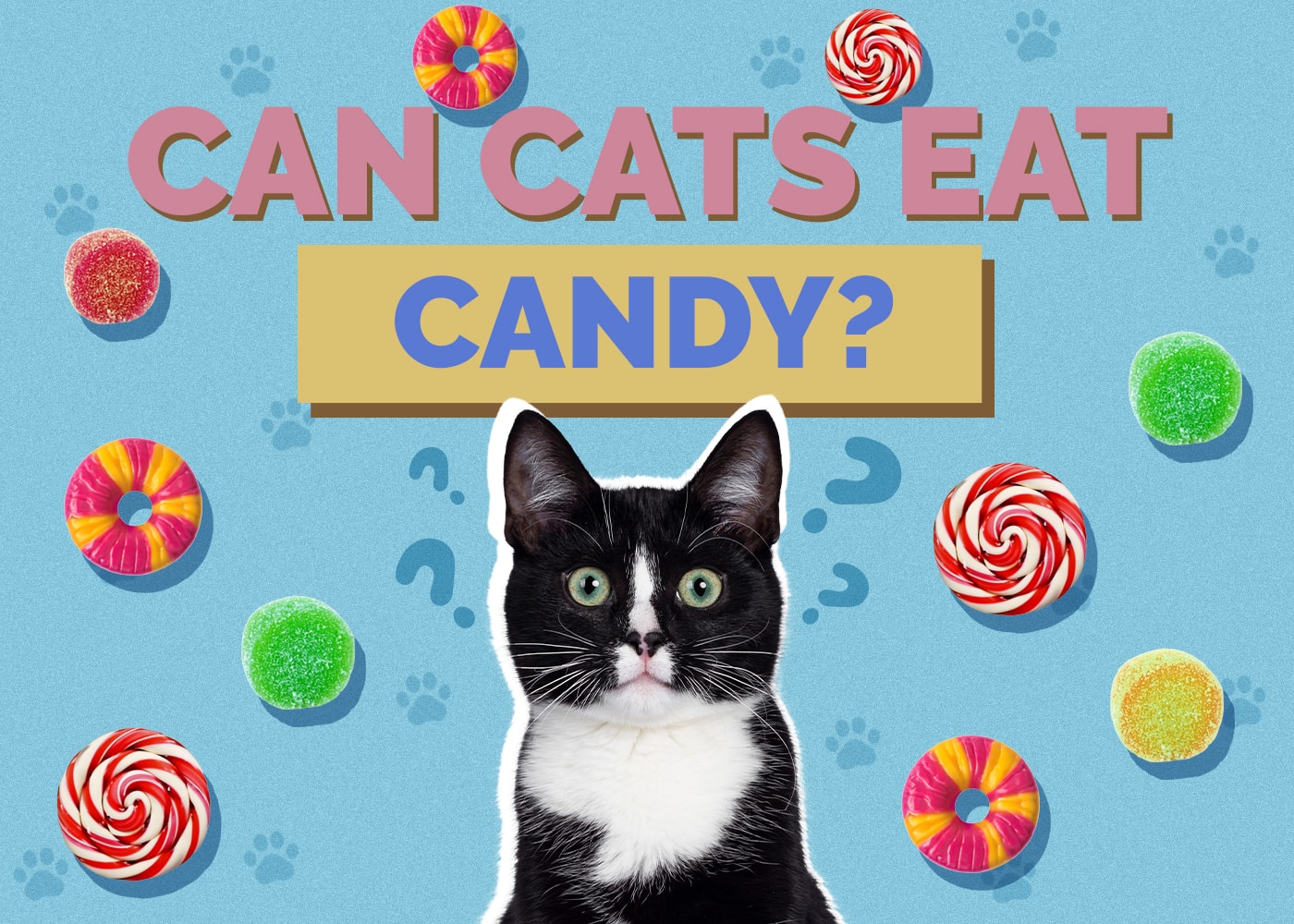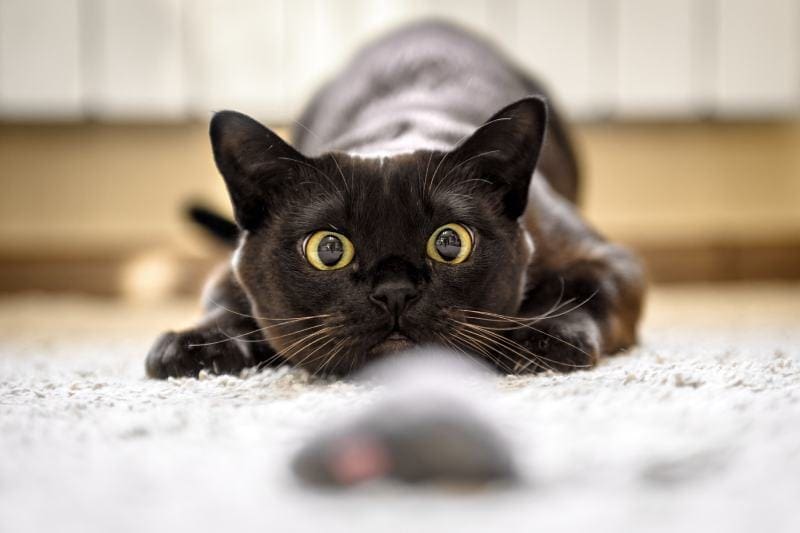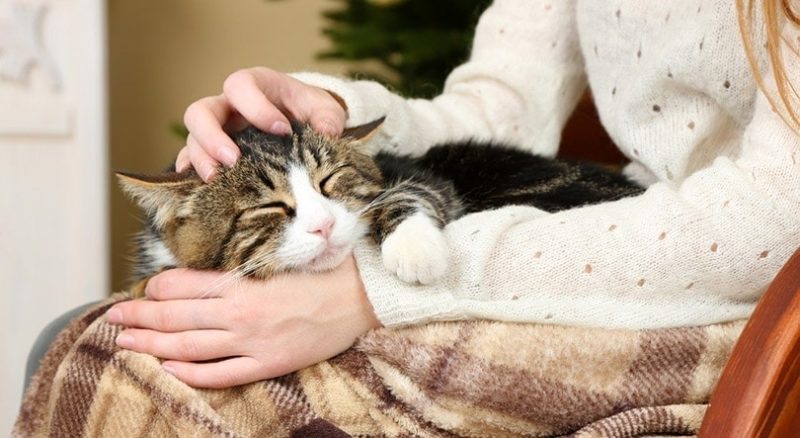Does Massage Help Constipation in Cats? Vet Approved Facts & Solutions
Updated on
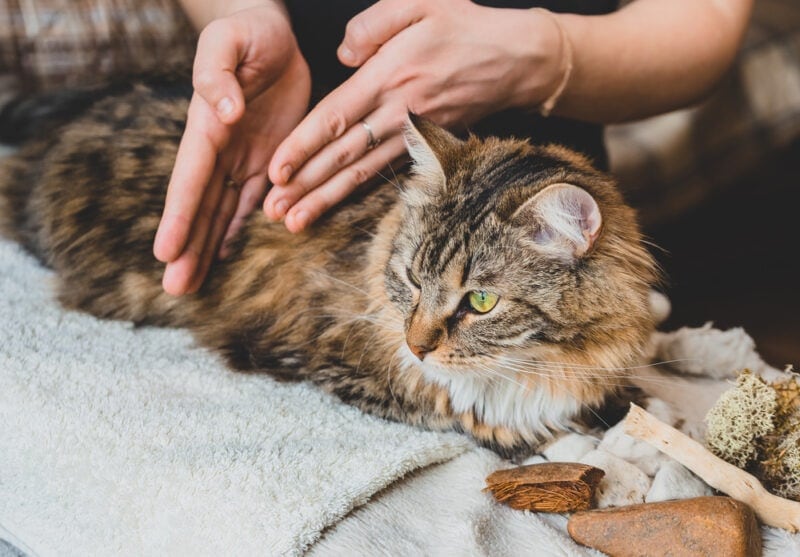
Click to Skip Ahead
Cats can suffer from constipation, just like humans. The problem is that these elusive creatures are masters at hiding their health issues and pain. Therefore, it is our responsibility as proud owners of these wonderful feline companions to be on the lookout for signs of issues.
But what do you do when you discover that your beloved pet is indeed constipated? Will massaging their problem area make them poop more effectively? Unless you’re working alongside your vet, the answer is no: Don’t try massaging your cat to help relieve their constipation. There are many other things that you can do at home to help your cat!
 What Is Constipation in Cats?
What Is Constipation in Cats?
Constipation occurs when a cat’s poop becomes difficult or impossible to pass out of their body. Most cats defecate approximately every 24 to 36 hours. If your cat is pooping less often and having difficulty doing so, they may be constipated.
It can be a mild issue that will resolve on its own, or it can be a serious problem that leads to dangerous complications if left untreated. So, before trying any home remedies, take your cat to the vet to rule out health-related causes or underlying illnesses.
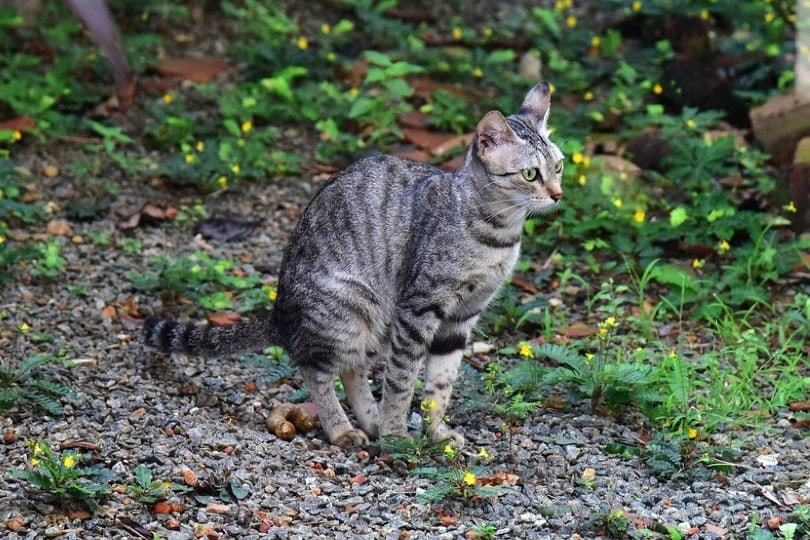
What Causes Constipation in Cats?
Several factors can cause constipation in cats — for example, a sudden change in diet. Cats have sensitive digestive systems, and even subtle differences in their food can cause constipation. Cats that are receiving medication may also develop constipation as a side effect.
Not enough water consumption, litter box problems, stressful situations and environments, and underlying illnesses are linked to constipation in cats.
- Hairballs
- Ingestion of foreign bodies
- Pelvic injuries
- Obesity
- Sedentary lifestyle
- Megacolon
Can Massage Help Cats With Constipation?
Scientific literature is full of data on the benefits of massage to relieve constipation. Indeed, in humans, abdominal massage has been shown to encourage gastrointestinal motility (peristalsis), decrease intestinal transit time, increase stool frequency, and reduce the discomfort and pain of chronic constipation. Moreover, massage produces changes in the activity of the nervous system, just like acupuncture.
Acupuncture and massage are also referred to as non-invasive neuromodulation techniques that can be effective in the treatment of chronic constipation. In cases of severe constipation, some experts recommend trying these techniques before submitting a cat for surgery.
However, while massaging your cat’s abdomen may help pass accumulated feces in their intestines, you should never attempt to massage this area without talking to your veterinarian first. Your pet must receive a full diagnosis before your veterinarian can recommend appropriate treatments.
So, if you want to learn more about massage techniques for your cat, ask your veterinarian what specific methods they suggest.
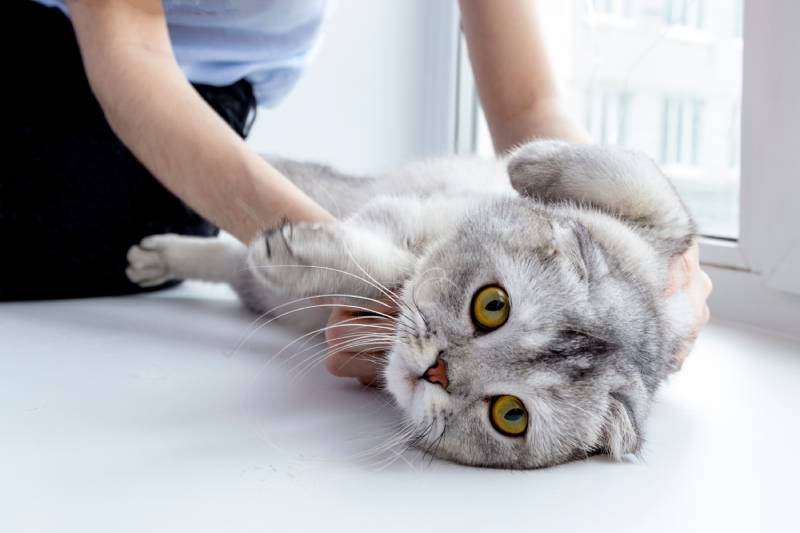
Preventing Constipation in Your Cat
If your cat is currently healthy and does not have any major health concerns, you can reduce the risk of them experiencing constipation by following a few simple tips:
- Make sure your cat is getting enough water. Your kitty should have access to fresh, clean water at all times to prevent them from becoming dehydrated. You can also supplement your cat’s diet with wet food if you think that they are not drinking enough.
- Make sure your cat has plenty of opportunities for exercise and play. Inactive and overweight cats are at a higher risk of developing constipation.
- Try to minimize stress and anxiety; cats can easily become stressed when their routines are disrupted.
- Give your cat a probiotic, which is helpful for digestion and gut health. Ask your veterinarian for advice before purchasing any type of supplement.
- Keep their litter boxes clean at all times, and add more boxes if you have multiple cats.
- Monitor the frequency and consistency of your cat’s feces using a calendar.
 Final Thoughts
Final Thoughts
Constipation in cats is an uncomfortable condition that can be caused by various factors. It is a disorder that affects the digestive system and can cause cats to have infrequent bowel movements or difficulty passing stool. It can lead to pain and straining and can cause an obstruction if not treated properly.
Moreover, constipation can be caused by dehydration, diet, inactivity, stress, or other health issues. Although massages may help treat chronic constipation, it is essential to work with your veterinarian to identify and treat the underlying cause and prevent constipation from recurring. By being aware of the signs of constipation in cats, you can help keep your pet healthy and comfortable.
Featured Image Credit: Ekaterina Kuzovkova, Shutterstock

 What Is Constipation in Cats?
What Is Constipation in Cats?